Water, Sanitation and Hygiene in the 7th Five Year Plan
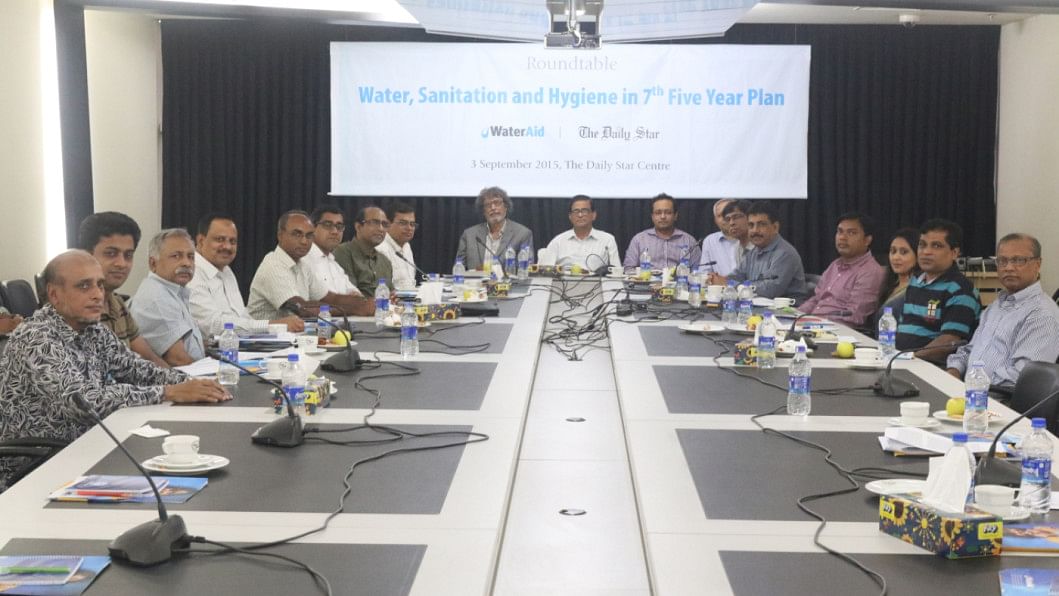
Shahnoor Wahid, Editor, Special Supplements; The Daily Star
The Daily Star and WaterAid have been working together to generate policy discussions and raise awareness about the importance of water, sanitation and hygiene in ensuring health and education rights of the poor and marginalized. We believe without reaching universal WASH accessibility, Bangladesh cannot be a middle income country with a healthy generation. I welcome all to this roundtable and have constructive discussion and request Mr. Shamim Ahmed to moderate the roundtable.
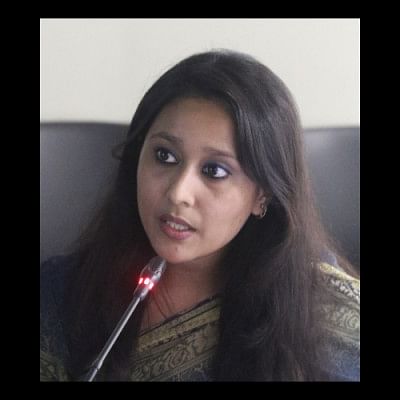
Robaiya Nusrat, Policy and Advocacy Specialist; WaterAid
Recently we have done an in-depth research on how to incorporate WASH issues in the 7th five year plan. Menstrual hygiene management (MHM) is one of the most neglected areas. 50% of our women and girls are malnourished due to lack of menstrual hygiene. We recommend for the 7th Five Year Plan that at least 50% of all the schools should provide separate latrines. In the National Hygiene Baseline Survey it is found that only 11% schools have separate latrines for female students. Recently a circular has been issued from education ministry where the issues of separate latrine and maintenance of menstrual hygiene are clearly emphasized. It has clearly said that menstrual hygiene should be maintained in such a way that female student do not have to be absent in the school as absence affects their educational capacity. In addition we want to recommend that there should also be adequate facility for cleaning, changing and disposing. We also recommend generating government fund and build proper separate toilet facility with changing and disposal facility.
We have proposed for ensuring hand washing spots in 100% households. It is of similar importance as having latrine as one of our research shows, 3 out of 5 households do not have hand washing facilities after defecation. This calls for an urgent requirement for ensuring a monitoring mechanism directed towards hand washing behavior in order to reduce risk to bacterial infection. In our hygiene survey we found that in 32% schools there were not any soap and hand washing facility. So it is important to have hand washing facility in schools after defecation and menstruating.
In the current fiscal budget, allocation for WASH has been decreased by more than 1 percentage point which is really unfortunate given the significance of WASH contributing factors in the off tracked MDG section of child malnourishment. In the upcoming five year plan we propose raising it by 5% of total allocation.
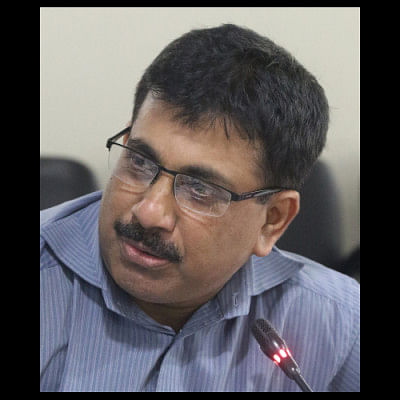
Alok Kumar Majumder, Country Coordinator; Bangladesh WASH Alliance
A research shows that for every one dollar investment in WASH, a return of 19 dollar is received. Another research has shown that Bangladesh incurs 29,500 crore taka losses every year due to poor WASH facilities. WASH is closely linked with various health and development indicators, for example, child mortality. SDG 6 has emphasized on WASH which is very encouraging. We want to see its reflection in our upcoming five year plan.
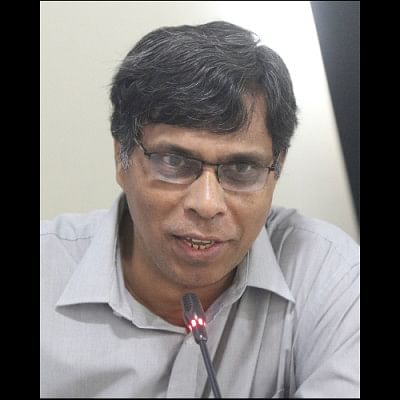
Dr Liakat Ali, Director, Programme, Policy and Advocacy; WaterAid
In the 7th five year plan they way WASH is treated it seems we have done a lot and have very little to do. But we are still far behind as per SDG's target towards safe water. In the next five year plan we need to include some indicators that reflect proper monitoring of WASH management in line with SDG Goal 6 so that we will get the advantage of being ahead of time.
Although the Water Act 2013 promoted rain water as an important source of safe potable water, it is yet to be elaborated in different policies, strategies and action plans. Despite a strong political commitment by the government, rainwater harvesting and conservation have not been made mandatory for all government buildings including school, cyclone shelters, and local government institution etc. The 7th Five Year Plan should specify rainwater harvesting as integral to sustainable water resources, is beneficial not only to the population in coastal regions, where there is an acute crisis of drinking water, and water more generally, but also for the sake of ensuring a secure level of groundwater in the urban areas.
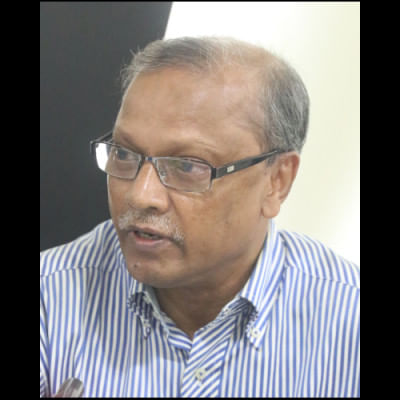
Fakhrul Hasan, Project Manager, Support to Sustainable & Inclusive Planning (SSIP) UNDP Funded Project
Water bodies in Dhaka are filling up and there isn't much thoughts revolving around to protect those, either from the government, civil society or private enterprises. As such when it rains for a day or even for few hours, there isn't any run down of water rather the entire Dhaka city gets clogged. Government tried to pursue very strongly the concept of RWH that was included within the building codes and operate through solar power. The building codes indicated that public utility buildings will put up Rain Water Harvesting (RWH) instruments along with solar panels on the top of all buildings but that escalated investment costs for public utilities to pace up their investments elsewhere. It is more of a scientific investment that is not successful in most countries due to its high cost investment. For Bangladesh it needs further research in order to reduce investment costs, rather focus has to be given on filling up of wetlands that reduces chances of water drainage and recharge.
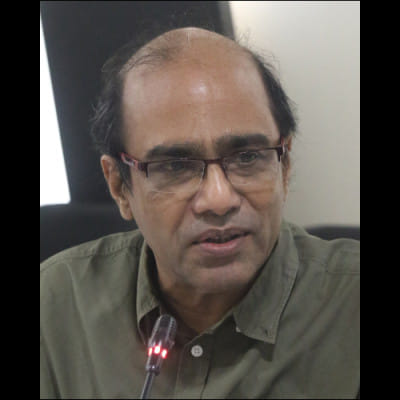
Dr. Dibalok Singha, Executive Director, Dushtha Shasthy Kendra (DSK)
The government has a vision of ensuring pure drinking water by 2021. This vision should be kept in mind in preparing the five year plan. Another important document is water sector development plan. The five year plan should be consistent with the goals of the plan. To me the most attractive target of SDG is public participation in development planning as it ensures voice of the mass. It must be included in the five year plan too. We often talk about extreme poor but they are not properly addressed in our development planning. Almost 2 crore people of the country are extreme poor and thus there should be special focus on them in the upcoming five year plan.
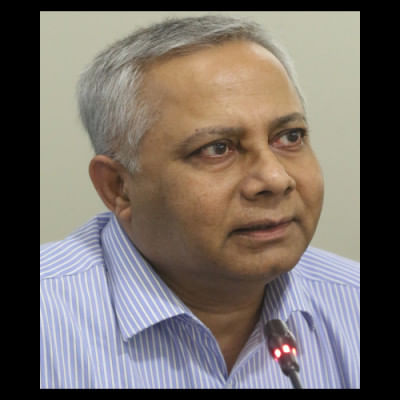
Dr Tahmeed Ahmed, Senior Scientist and Director of the Centre for Nutrition and Food Security ICDDR, B
In Bangladesh more than fifty per cent (50%) children suffer from fever, diarrhea and pneumonia which are all related with lack of WASH facilities. Stunting is another health concern which is also directly linked with WASH. In our country still 36% children are suffering from stunting. So ensuring WASH facilities is a major development concern for overall well being of our future.
It is a common practice in our country that mothers make complementary foods for their children once a day and continue to feed them all through the day. One of our research shows that those food becomes contaminated within two hours. Research has further stimulated the fact that mothers uses the same spoon several times without washing it after every feeding on the process it contaminates the food that is being fed. Our mothers should be made aware of these hygiene issues. The city has become a 'garbage capital'. Establishing adequate hardware for water and sanitation may be a bit costly but we can do behavior change communication (BCC) which is a cheap but very effective method for inducing change.
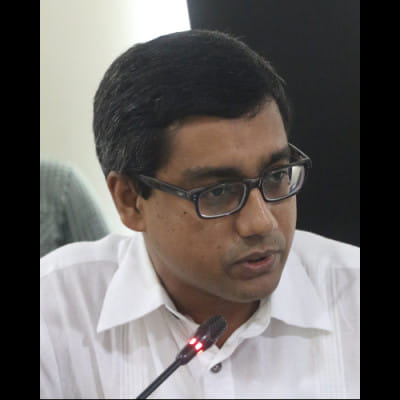
Mohammad Zobair Hasan, Chief (Research, Evaluation & Monitoring), DORP
Despite remarkable progress in overall WASH coverage in the country, very little investment for research and development has been made in either technological innovations or socioeconomic and political analysis of WASH issues. Hence problems persist in haor, char, and coastal belt and tea garden areas due to lack of technological options and understanding of power dynamics, as well as rights based issues. Special allocation for research and development will be made for encouraging academic institutions and research institutions to conduct and generate new ideas like sanitation marketing and innovative technologies for sustainable WASH in hard to reach areas for the marginalized people.
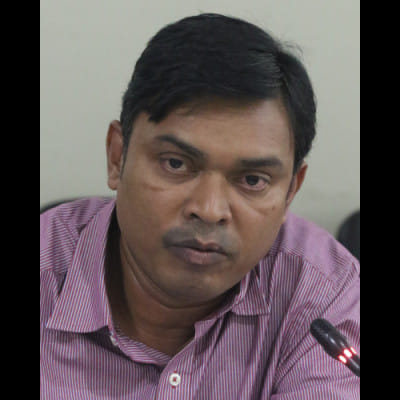
Shah Riazur Rahman, National Programme Officer (WASH Governance), SDC, Embassy of Switzerland
I want to address the surface water issue. It is important for both water supply and water retention. Bangladesh government has recently issued a circular on establishing a khas pond in every union. This is an important initiative. We need to think of it seriously.
In rural areas we see various types of latrines. There should be a standard model for it which will be hygienic and environment friendly. From our side, we are fully committed to WASH issues. Our embassy has a big funding plan in this sector for next ten years.
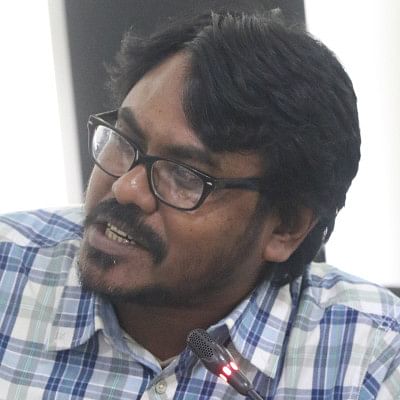
Pinaki Roy, Senior Reporter, The Daily Star
We have destroyed our surface water sources. Now we are suffering from scarcity of safe water. In the saline affected areas scarcity of pure drinking water is severe. The threat of water scarcity is looming before us. Are we are aware of it?
A recent BBS survey indicates that 47.7% of household drinking water is unsafe at source due to arsenic and E.coli contamination – at the household level, this figure drops to only 34.6%. An overall 12.5% of the population fetches water from arsenic contaminated water points. It is recommended that the 7th Five Year Plan revisit the water quality percentage points in light of these findings, and also increase the number of piped water in the rural areas, in order to make households less vulnerable in reaching water points and contaminate the source water while transporting.
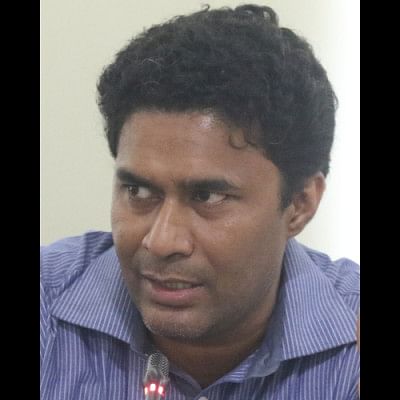
Iftekhar Mahmud, Senior Reporter, Prothom Alo
In our country most of the government institutions do not have effluent treatment plant (EPT). So think about what is the situation of the private sector organisations. This is a very important issue to focus on. The idea of pure drinking water is predominantly bacteria related but our water is also becoming contaminated by heavy metals. We should also focus on it.
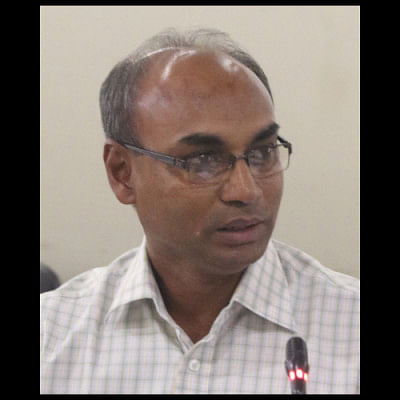
Joseph Halder, Head Advocacy and Information, NGO Forum for Public Health
In Bangladesh, the average number of students to a school toilet is 187, whereas according to the National Baseline the recommended number is 50. The toilets that are available are often not of adequate cleanliness, with only 24% of school toilets surveyed by the National Hygiene Baseline appearing clean during spot checks. The issue of school hygiene is highly neglected, with only about one-third (32%) of schools having a hand washing location with soap and water available. Special direction for WASH in Schools in the 7th Five Year Plan has been recommended to generate funds which will be available for maintenance of toilets, keeping sanitary pads for girls in the schools, and ensuring that the latrines are kept open during class time, and are of course inclusive for universal accessibility.
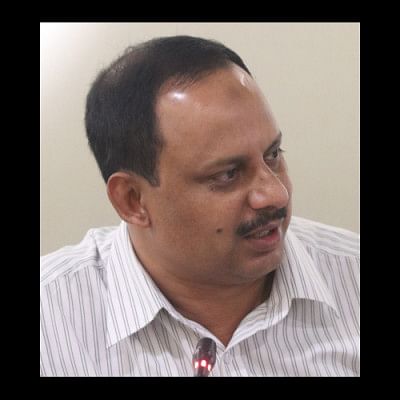
Shah Md Anowar Kamal, National Coordinator, WSSCCB
A Sector Wide Approach (SWA) for WASH is now mandatory. To develop and implement a SWA, the government recognizes the importance of developing a national WASH account. We recommend, during the implementation of the 7th Five Year Plan, a national WASH account for WASH sector will be developed and a strategic direction and clear road map will be in place for finalizing the sector wide approach.
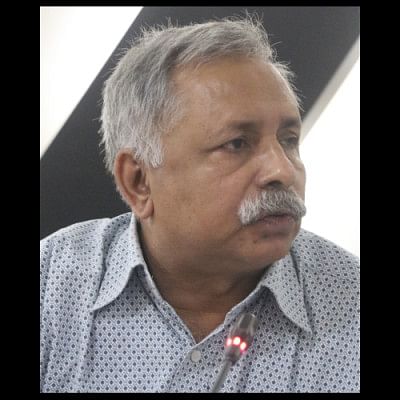
Dr. Avijit Poddar, Ph.D, Director Research, Human Development Research Centre (HDRC)
In the National Strategy for Water and Sanitation: Hard to Reach Areas of Bangladesh, 1,141 unions have been identified as the most hard to reach. Coastal, Char, Wetlands, Barind, Haor, Beel and Hilly areas are hard to reach due to extreme remoteness and hydro-geophysical condition. The people of urban slums and tea gardens have better road and communication systems compared to these remote areas, but are still hard-to-reach in terms of their exclusion from many services provided by authorities. It is recommended in the 7th Five Year Plan that in all hard-to-reach areas of Bangladesh, effective enforcement of existing water and sanitation policies and strategies, co-ordination among the public and private authorities, active participation of relevant stakeholders in decision making procedures, and accountability and transparency of development funds be ensured.
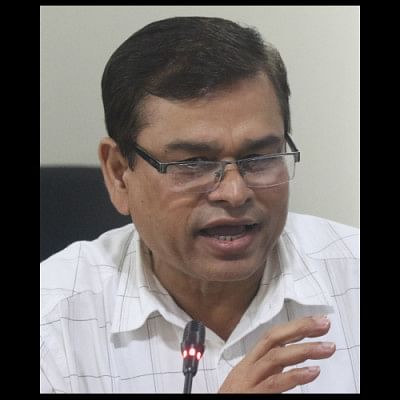
Engr. Md Wali Ullah , Additional Chief Engineer (Planning) and Member Secretary Sanitation Secretariat, DPHE
We need to see WASH as a separate sector. Only then it will get proper focus. In the 7th five year plan it remains as a sub-sector. The government has committed separate allocation for WASH in Sanitation and Water for All convention. Without making WASH a separate sector how can we allocate separate budget for it.
In the 7th five year plan we see ADP allocation for urban sector but where about rural areas. Previously there were separate allocations for rural and urban areas. In the upcoming plan we do not see it. I think the document should clearly mention about the budget for rural areas. We need to use surface water effectively. It can allay the water problem in water scarce areas. At the same it will help recharge rain water. Media can play a big role in making people aware about WASH issues.
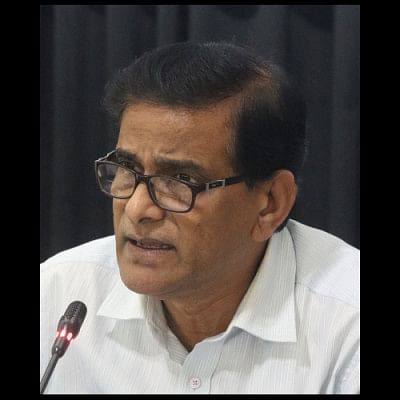
Professor Dr Shamsul Alam, Senior Secretary to the Government of Bangladesh and Member, General Economic Division, Planning Commission
We are in a crisis of proper civic sense amongst citizens. Our attitude is always to point on the negativities of the government and we expect them to do everything for us. We throw waste openly on the roads for which most of our manholes are stuck with polythene bags. People see these things but do not cluster together to get things in order. We need a movement to clean the city as well as make people aware of WASH through the hygiene sector.
There are thousand of issues in the country which are more or less important. However, the issues regarding water, sanitation and hygiene are very crucial and there is nothing to disagree about that. We are well aware about the importance of WASH in the health and education sector as well. Although we cannot address all the issues in one document, still I will try to include your recommendations regarding water, sanitation and hygiene in the relevant parts of the 7th five year plan.
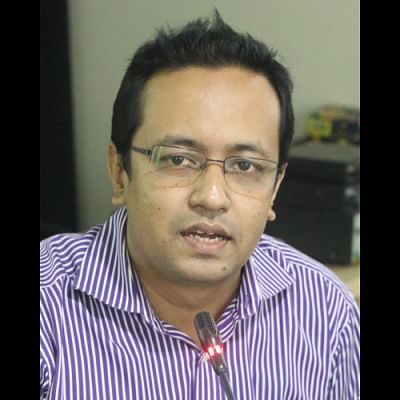
Shamim Ahmed, Head, Policy and Advocacy; WaterAid
While the success of reducing open defecation to 1% in Bangladesh is impressive, the progress has created a new challenge of faecal sludge management, which in the absence of a planned system is likely to undermine the achievements made, and give rise to significant public health and environmental risks. The recently approved Sanitation Strategy has laid down the broad direction for managing faecal sludge, to be worked out in greater details during the 7th Five Year Plan period. Bangladesh is undergoing a rapid urbanization process. There are millions of people who are traveling every day from one city to another, and many others are traveling within the cities. There are not adequate provisions for public toilets and mobile toilets in the country for these floating people. Women and children suffer disproportionately from discomfort and disease burden due to lack of proper WASH services in urban areas. In slums, people share latrines with no provision for sludge management. In the 7th Five Year Plan, provisions should be made for adequate public and mobile toilets in the major cities and small towns in collaboration with development agencies to address these critical gaps. Finally, the Local Government Division of the Ministry of Local Government recently conducted, published and disseminated the findings of the first ever National Hygiene Baseline Survey of Bangladesh. The findings of the study are crucial to ensure sustainable WASH coverage in Bangladesh by improving the overall health status of the people. We expect a repeat survey will be conducted during the 7th Five Year Plan, and the government will encourage relevant ministries and donor agencies to keep special budgetary provision for dissemination of the survey findings up to district level, as well as designing a nationwide hygiene promotion campaign for awareness building.

 For all latest news, follow The Daily Star's Google News channel.
For all latest news, follow The Daily Star's Google News channel. 



Comments